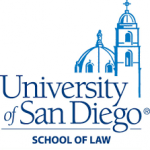

Recent improvements both in Human Language Technology (HLT) and in techniques for storage and rapid analysis of large data collections have created new opportunities for automated interpretation of legal text, improved access to statutory and regulatory rules, and greater insights into the structure and evolution of legal systems. These techniques hold promise for the courts, legal practitioners, scholars, and citizens alike. These advances have coincided with a rapid expansion of interest in automated processing and understanding of legal texts on the part of industry, government agencies, court personnel, and the public.This workshop is intended to be a forum for discussion of research ideas and practical developments that involve interpretation of legal text, analysis of structured legal documents, improved publication and access to document collections, predictive analysis based on legal text mining, and visualization of legal corpora.
Participation is invited on all topics relevant to these research themes, including:
- Application of “Big Data” techniques, including data mining and machine learning, to legal and financial document corpora
- Network models of statutory and case law, including visualization techniques specialized for legal networks and legal tasks
- Global, emergent, and dynamic properties of legal text collections, such as modularity, language models, complexity, and trends in legal doctrine and practice
- Techniques for improving public access to, understanding of, and compliance with statutory and regulatory rule sets
- Legal question-answering systems
- Legal document analysis, including semantic analysis, information extraction, abstraction, summarization, topic modeling, coreference resolution, and document-structure analysis
- Induction of predictive and descriptive models from legal corpora, such as probability of success of a motion or claim, expected case duration and settlement value, and expected consequences of alternative litigation decisions
The intended audience for the workshop includes researchers and practitioners from industry, academia, and government working at the intersection of HLT, artificial intelligence, social science, data and network science, and law.
The workshop will be one day in length consisting of paper presentations, invited talks, demonstrations, and a panel discussion.
Submission information
Research papers and abstracts must be in the ACM proceedings format, http://www.acm.org/sigs/pubs/proceed/template.html.Venue
The Workshop will be held at Warren Hall, University of San Diego Law School, San Diego, California.Important Dates
13 May 2016: Notification of Acceptance
27 May 2016: Corrected papers due
17 June 2016: Workshop DateProgram Chair
Karl Branting, The MITRE Corporation, USA,lbranting@mitre.org, (+1) 410-660-9094Workshop Chair
Ted Sichelman, University of San Diego Law School, tsichelman@sandiego.edu, (+1) 619-260-7512Program Committee
Thomas Bruce, Cornell Law School, tom@liicornell.orgJack G. Conrad, Thomson Reuters, Corp. R&D, jack.g.conrad@thomsonreuters.com
William Hamilton, University of Florida Law School, hamiltonw@law.ufl.edu